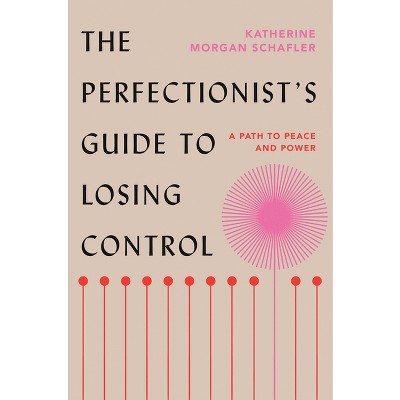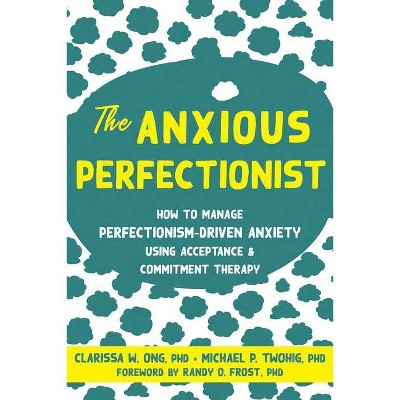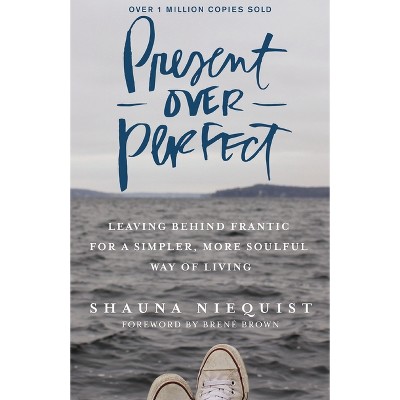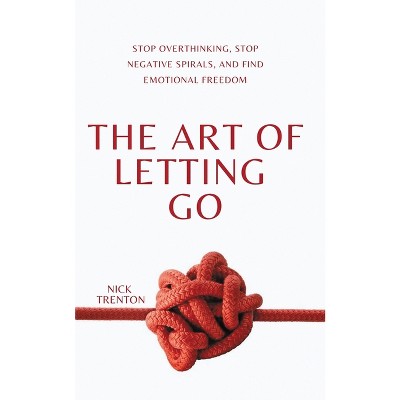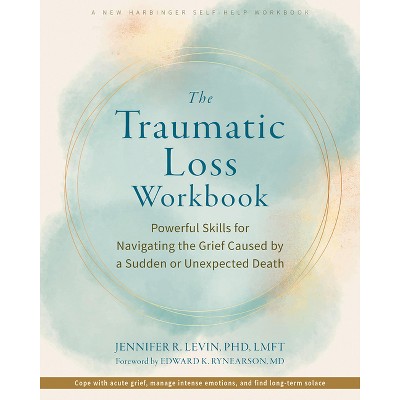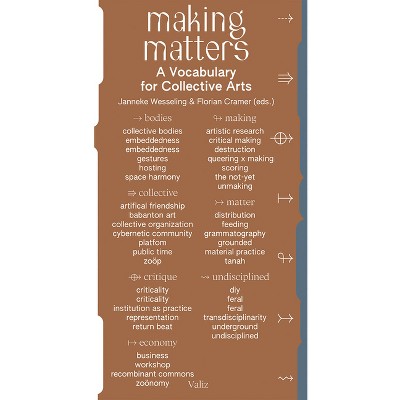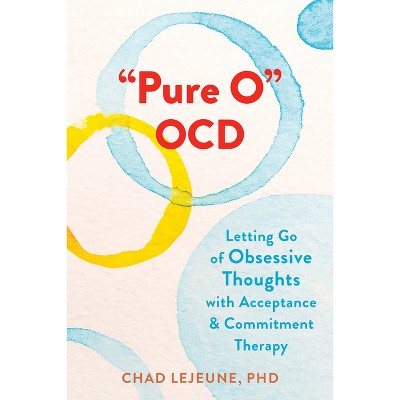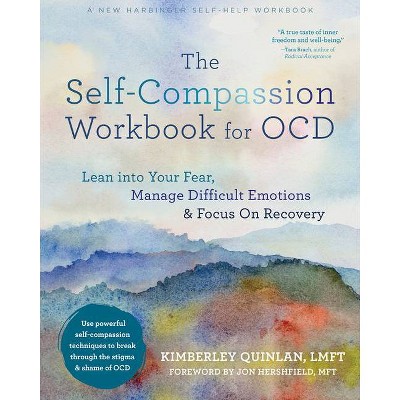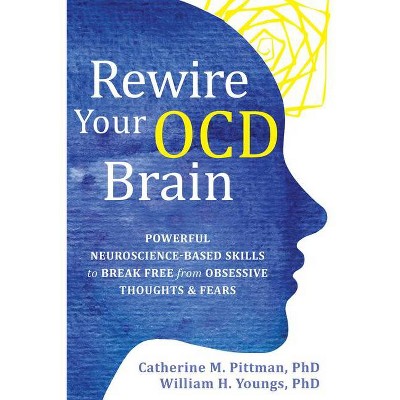Sponsored

Making Space for What Matters - by Jennifer Krafft & Clarissa W Ong & Michael E Levin & Michael P Twohig (Paperback)
In Stock
Sponsored
About this item
Highlights
- A powerful and compassionate guide to help you find lasting freedom from hoarding.
- About the Author: Jennifer Krafft, PhD, is an assistant professor at Mississippi State University whose work focuses on acceptance and commitment therapy (ACT), self-help, and hoarding.
- 192 Pages
- Self Improvement, Compulsive Behavior
Description
About the Book
People who hoard often struggle with coexisting mental health issues, such as obsessive-compulsive disorder (OCD), anxiety, and trauma. They may also feel shame or guilt about their behaviors--which can actually lead to more hoarding and worsened mental health. Written by a team of clinicians and grounded in evidence-based acceptance and commitment therapy (ACT), this compassionate guide helps readers gain a better understanding of their hoarding behaviors, and offers a values-based approach to find lasting freedom.Book Synopsis
A powerful and compassionate guide to help you find lasting freedom from hoarding.
If you hoard--or have a loved one who hoards--you may feel helpless, hopeless, or ashamed. The thought of letting go of belongings may fill you with anxiety, dread, or grief. And you may wonder if you'll ever experience the freedom of living without the weight of this debilitating behavior. It's important to know you are not alone, and that hoarding isn't your fault. This book will help you find your way out of the clutter and chaos, and into the life you truly want.
Written by a team of mental health professionals and grounded in evidence-based acceptance and commitment therapy (ACT), this book offers a values-based approach to finding lasting freedom from hoarding. Based on cutting-edge research, this book will help you unravel the stories your mind has created about you and your belongings. You'll also discover how emotions and thoughts play a role in hoarding behaviors, and how you can declutter to live a life more closely aligned with your deepest values.
Most importantly, you'll learn to move beyond feelings of shame and guilt that are associated with hoarding, and cultivate the self-compassion, self-awareness, and self-understanding needed to make real, lasting changes.
Review Quotes
"Making Space for What Matters is a must-read book for anyone who's struggling with clutter overtaking their lives. Chock-full of practical exercises and examples, this rich resource is sure to help countless people live a more clutter-free life using state-of-the-art techniques and tools. If you're struggling with clutter or hoarding, this book is an excellent place to start. I'll be recommending it strongly to anyone looking to take the brave step of fighting their clutter or hoarding."
--Greg Chasson, PhD, ABPP, psychologist, associate professor of adult psychiatry at the University of Chicago, and coauthor of Hoarding Disorder;
"As someone who researched hoarding and ACT for my PhD years ago, I've been waiting for exactly this book. Krafft, Ong, Levin, and Twohig have created a compassionate, research-backed guide that goes beyond organizing tips to address what's really happening beneath the clutter. I've used these pr
--Jan Eppingstall, PhD, founder of Stuffology Consulting
"People with hoarding problems often feel imprisoned by their circumstances. In this book, Krafft, Ong, Levin, and Twohig describe a program that unlocks that prison. The key lies in understanding the meaning of possessions and their connection to life values. By guiding you to articulate these values and evaluate possessions in light of them, this program will help with decluttering and make your life more satisfying and fulfilled."
--Randy O. Frost, PhD, professor emeritus of psychology at Smith College, and author of Stuff
"Smart, sincere, and seriously helpful, this book offers a fresh, acceptance and commitment therapy (ACT)-based approach for people stuck in clutter and hoarding struggles. The authors--brilliant and big-hearted--translate solid science into real-world wisdom with clarity and compassion. If you're looking for a values-driven way forward that honors the messiness of being human, this book delivers."
--D.J. Moran, PhD, BCBA-D, associate professor at Touro University California, and featured psychologist on Hoarding: Buried Alive and Confessions: Animal Hoarding
"The authors thoughtfully turn their years of valuable research and clinical experience into a friendly and digestible guide. Open this book. You'll find a compassionate and wise friend who gets you and is committed to walk alongside you, step by step, through the sometimes overwhelming and lonely journey of healing. I am really glad this book has been brought to the world!"
-- Chia-Ying Chou, PhD, director of The San Francisco Center for Compassion-Focused Therapies, and the Better Treatment for Hoarding program
"This book is a truly compassionate and evidence-based guide for anyone struggling with hoarding and cluttering behaviors. Drawing on ACT, all chapters go beyond traditional messages and tap into the core psychological processes that often accompany hoarding and cluttering. Page by page, this manuscript offers readers a clear path to living more freely and in alignment with their deepest values. A must-read!"
--Patricia E. Zurita Ona, PsyD, author of The ACT Workbook for the Anxious Procrastinator
About the Author
Jennifer Krafft, PhD, is an assistant professor at Mississippi State University whose work focuses on acceptance and commitment therapy (ACT), self-help, and hoarding. She is editor of a book on innovations in ACT, has received grant funding from the Association for Contextual Behavioral Science (ACBS), and has published thirty-five journal articles.
Clarissa W. Ong, PhD, is an assistant professor at the University of Louisville. She serves as associate editor for the Journal of Contextual Behavioral Science. She has published two ACT books; has contributed to more than seventy journal articles, including those on ACT, hoarding, and perfectionism; and has received grant funding from ACBS and the International OCD Foundation (IOCDF).
Michael E. Levin, PhD, is a professor at Utah State University. He is an ACBS fellow and past editor in chief of the Journal of Contextual Behavioral Science, the peer-reviewed ACBS journal. He is a leading researcher on developing, evaluating, and disseminating self-guided ACT interventions for a wide range of mental health concerns. He has conducted more than fifty clinical trials evaluating ACT self-help interventions, and has made several of these programs publicly available as part of the USU ACT Guide suite of services.
Michael P. Twohig, PhD, is a professor in the psychology department at Utah State University. He is a past president of ACBS. He has written more than 200 peer-reviewed publications and over ten books, and has received funding from many organizations, including the National Institute of Mental Health (NIMH).
Foreword writer David F. Tolin, PhD, is founder and director of the Anxiety Disorders Center and the Center for Cognitive Behavioral Therapy at the Hartford Hospital Institute of Living in Hartford, CT. He is author of Face Your Fears and Doing CBT.
Shipping details
Return details
Guests also viewed
